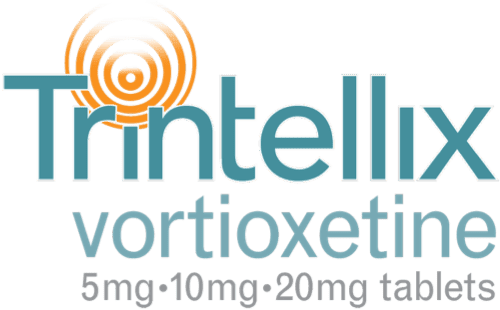SUPER: When you think of life with Major Depressive Disorder, or MDD, what do you see?
VO: When you think of life with Major Depressive Disorder, or MDD, what do you see?
VO: People may think they know exactly what MDD looks like.
VO: But the truth is that MDD looks different for everyone
VO: because everyone experiences it differently.
VO: To get a more authentic picture of MDD, we have to look at not just the disorder, but also some people living with it.
VO: Because when a patient works with their doctor to find the treatment plan that’s right for them, it may have a noticeable impact on their MDD.
VO: That’s what I want other patients to know.
SUPER: Who am I?
VO: Who am I?
SUPER: A real patient with MDD
VO: My name is Jesus.
SUPER: A real patient with MDD
VO: My name is Ruth.
SUPER: A real patient with MDD
VO: My name is Tatiana.
SUPER: What is TRINTELLIX? TRINTELLIX (vortioxetine) is used in adults to treat a certain
type of depression called Major Depressive Disorder (MDD). TRINTELLIX has not been shown to be safe and effective for use in children. By prescription only.
VO: Our doctors told us about TRINTELLIX, a prescription medicine for adults with a type of depression called Major Depressive Disorder, or MDD.
SUPER: TRINTELLIX + STORYTELLERS
TRINTELLERS are real MDD patients treated with
TRINTELLIX who are here to share their stories with others.
SUPER: TRINTELLIX + STORYTELLERS = TRINTELLERS
TRINTELLERS are real MDD patients treated with TRINTELLIX who are here to share their stories with others.
VO: Now—We’ve become the first TRINTELLERS, a collection of actual TRINTELLIX patients
VO: who are telling personal stories of our lives with MDD.
VO: Each of us will be recording one second of our lives.
VO: everyday, as well as telling you about our recent experiences with MDD,
VO: working with our doctors, and our journey with TRINTELLIX.
SUPER: TRINTELLIX increases the risk of suicidal thoughts and actions in people 24 and younger.
VO: TRINTELLIX increases the risk of suicidal thoughts and actions in people twenty-four and younger.
SUPER: Call a doctor right away if you have these, or new or worsening depression, or new or sudden changes in mood, behavior, thoughts or feelings. TRINTELLIX is not for use in children.
VO: Call a doctor right away if you have these, or new or worsening depression, or new or sudden changes in mood, behavior, thoughts, or feelings. TRINTELLIX is not for use in children.
SUPER: Do not take with MAOIs.
VO: Do not take with MAOIs.
SUPER: Tell your doctor about all medicines you take, to avoid a life-threatening condition.
VO: Tell your doctor about all medicines you take, to avoid a life-threatening condition.
SUPER: Increased risk of bleeding may occur, especially if taken with aspirin, NSAID pain relievers, or blood thinners.
VO: Increased risk of bleeding may occur, especially if taken with aspirin, NSAID pain relievers, or blood thinners.
SUPER: Manic episodes, eye problems, low sodium levels, and sexual problems can occur.
VO: Manic episodes, eye problems, low sodium levels, and sexual problems can occur.
SUPER: Suddenly stopping TRINTELLIX may cause serious side effects.
VO: Suddenly stopping TRINTELLIX may cause serious side effects.
SUPER: Common side effects include nausea, constipation, and vomiting.
VO: Common side effects include nausea, constipation, and vomiting.
VO: Although we know there isn’t a cure for MDD and that we’ll continue to face challenges, we want to start the conversation and raise awareness for others who may be living with MDD.
SUPER: Individual results may vary.
VO: Together, we hope to encourage other MDD patients to work with their doctor to find the treatment plan that works for them.
SUPER: Medication may not be appropriate for everyone.
VO: Thank you and see y’all soon.
SUPER: For more safety information, including Boxed WARNING for Suicidal Thoughts and Actions, please click on the link to the Medication Guide located at the bottom of this video player and talk to your doctor. You are encouraged to report negative side effects of prescription drugs to the FDA. Visit www.fda.gov/medwatch or call 1-800-FDA-1088.
SUPER: TRINTELLIX is a trademark of H. Lundbeck A/S registered with the Patient and Trademark Office and used under license by Takeda Pharmaceuticals America. Inc. TAKEDA and the TAKEDA logo are registered trademarks of Takeda Pharmaceutical Company Limited. @2024 Takeda Pharmaceuticals U.S.A., Inc. All rights reserved 1-877-TAKEDA-7 (877-825-3327).
US-VOR-0821v2.0 06/24

